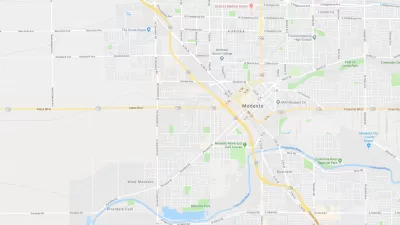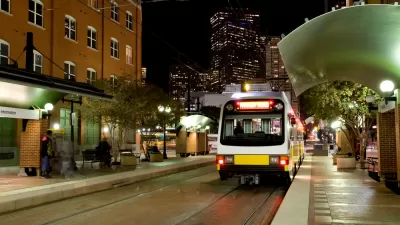The seventh round of TIGER funding was announced last week. Louisville provides a case study of how cities engage with the competitive grant process.
"Project selections for the seventh round of DOT's Transportation Investment Generating Economic Recovery (TIGER) competitive grant program were announced on October 29, 2015," according to a post on the U.S. Department of Transportation website. "The Department will provide nearly $500 million for 39 projects in 34 states, with some projects spanning several states."
The U.S. DOT splits the projects into three categories of projects: safety, innovation, and opportunity. A fact sheet provides more details on each of the 39 projects [pdf] awarded funding in this year's round of grants.
Although few local media outlets picked up the news of their grant awards last week, a spate of coverage on the mixed-results of Louisville in the TIGER process set the pace for public discussion of the potential of TIGER funding. Earlier in October, Jacob Ryan wrote extensively on the city's inability to apply for TIGER funding for the Move Louisville plan, which could pay off in the long run with project proposals that will be easy winners in competitive grant processes. Later in the month, however, Klayko noted that the city had received its first TIGER grant, for a project "to remake Dixie Highway into a multi-modal street complete with the city’s first Bus Rapid Transit System on dedicated bus lanes." Klayko's article also provides a survey of the progress on several of the transit-focused initiatives ongoing in the city of Louisville.
FULL STORY: TIGER Discretionary Grants

Alabama: Trump Terminates Settlements for Black Communities Harmed By Raw Sewage
Trump deemed the landmark civil rights agreement “illegal DEI and environmental justice policy.”

Study: Maui’s Plan to Convert Vacation Rentals to Long-Term Housing Could Cause Nearly $1 Billion Economic Loss
The plan would reduce visitor accommodation by 25% resulting in 1,900 jobs lost.

Why Should We Subsidize Public Transportation?
Many public transit agencies face financial stress due to rising costs, declining fare revenue, and declining subsidies. Transit advocates must provide a strong business case for increasing public transit funding.

Paris Bike Boom Leads to Steep Drop in Air Pollution
The French city’s air quality has improved dramatically in the past 20 years, coinciding with a growth in cycling.

Why Housing Costs More to Build in California Than in Texas
Hard costs like labor and materials combined with ‘soft’ costs such as permitting make building in the San Francisco Bay Area almost three times as costly as in Texas cities.

San Diego County Sees a Rise in Urban Coyotes
San Diego County experiences a rise in urban coyotes, as sightings become prevalent throughout its urban neighbourhoods and surrounding areas.
Urban Design for Planners 1: Software Tools
This six-course series explores essential urban design concepts using open source software and equips planners with the tools they need to participate fully in the urban design process.
Planning for Universal Design
Learn the tools for implementing Universal Design in planning regulations.
Smith Gee Studio
Alamo Area Metropolitan Planning Organization
City of Santa Clarita
Institute for Housing and Urban Development Studies (IHS)
City of Grandview
Harvard GSD Executive Education
Toledo-Lucas County Plan Commissions
Salt Lake City
NYU Wagner Graduate School of Public Service




























